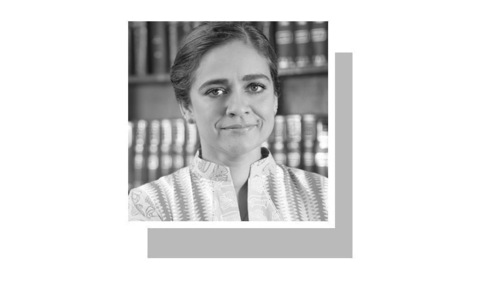ISLAMABAD: A study on women’s marriage rights revealed that 86 per cent ‘Nikah’ registrars in Lahore believed the bride was not competent enough to negotiate terms of her Nikahnama (marriage certificate), 85 per cent believed that delegating the right to divorce to women in the Nikahnama would increase the divorce rate, and 92pc believed the wife’s right to maintenance was subject to obedience to her husband.
The data was shared on Tuesday at the launch of ‘Diagnostic Study of Nikahnamas in Punjab: A Review of Women’s Marriage Rights (Diagnostic Study)’. The study was developed by the Centre for Human Rights (CFHR) in collaboration with Musawi and the National Commission for Human Rights.
The study assessed the status of women’s marriage rights to better understand gaps in the existing legislative and institutional framework that hindered women’s access to and implementation of marriage rights in Punjab. The study reviewed 1,100 Nikahnama and interviewed 105 Nikah registrars in 14 Union Councils of two pilot districts in Punjab, Lahore and Pakpattan (2020-2021), besides analysing the related legislative and implementation frameworks.
‘Leaving them blank’
Key issues identified by the study included gaps in enforcement and implementation of existing laws such as the Punjab Muslim Family Laws Amendment 2015, which prohibited crossing out of columns of the Nikahnama or leaving them blank. Moreover, perceptions, beliefs, understanding and capacity of NRs on marriage rights and laws, limited oversight and accountability of NRs, inadequate understanding of validity of marriage and inconsistencies in Nikahnama form, format and clauses all impacted access to key marriage rights, especially of women.
86pc registrars in Lahore believe brides not ‘competent enough’to negotiate terms of nikahnama
In Pakpattan, the study showed that the bride’s CNIC details were missing in 58pc of the Nikahnamas and 23pc did not record the age of the bride. Only 8pc included the right to monthly allowance and 2pc gave the wife the right to divorce.
‘Consent under duress valid’
Survey with Nikah registrars in Pakpattan revealed that 60pc considered consent given under duress as valid for the purposes of marriage. Interestingly, 58pc Nikah registrars believed that Haq Mehr was not a mandatory requirement for a valid Nikah, 6pc believed that child marriage was legally valid if the guardian gave permission, and 40pc believed that Haq Mehr was not the sole property of the wife.
In addition, 78pc believed women’s right to work was subject to husband’s permission and 61pc believed Khula was not an independent right of women to seek divorce.
In Lahore, brides’ CNIC details were found missing in 15pc of the Nikahnama, 26 had no column for CNIC details, 9 did not record the age of the bride and 31 were different from the standard Nikahnama form.
The study said only 9.7pc of Nikahnamas included the right to monthly allowance and only 3pc gave the wife the right to divorce.
Survey with registrars showed that 67pc believed women’s right to work was subject to husband’s permission, 26pc perceived consent of the guardian more important than the bride’s free will, 83pc considered Haq Mehr not mandatory for a valid marriage, 55pc believed that Haq Mehr was not the sole property of the wife, and 64pc believed Khula was not an independent right of women to seek divorce.
Speaking on this occasion, NCHR Chairperson Rabiya Javeri Agha said the study would contribute to improving the knowledge and awareness of Nikahnama clauses and women’s marriage rights across the country.
“Columns that are usually crossed at the time of Nikah are actually meant to safeguard and protect women’s rights in a marriage. The study findings highlight the importance of effective implementation of the law that binds NRs to fill these columns.”
Tahera Hasan, a lawyer specialising in family law, said that the preservation of women’s marriage rights was hindered not by a dearth of legislation but by the cultural and social impediments that curtail the realisation of these rights.
Musawi CEO Fatima Yasmin Bokhari said, “The Nikahnama was the starting point in a conversation on women’s marriage rights. If properly understood and filled, it enables essential safeguards for women.”
Justice Jawad Hassan of the Lahore High Court said that the Nikahnama was a contract containing rights of the parties; the courts of Pakistan have made this abundantly clear.“
Published in Dawn, August 9th, 2023













































